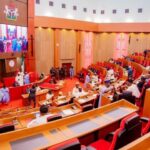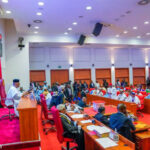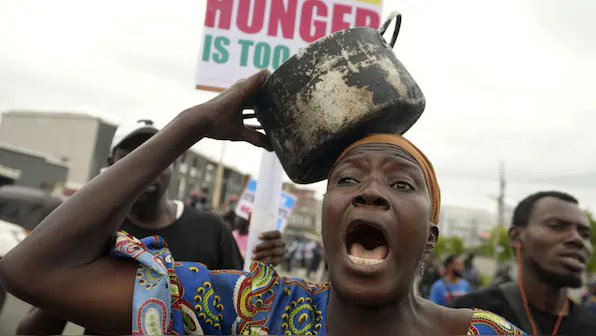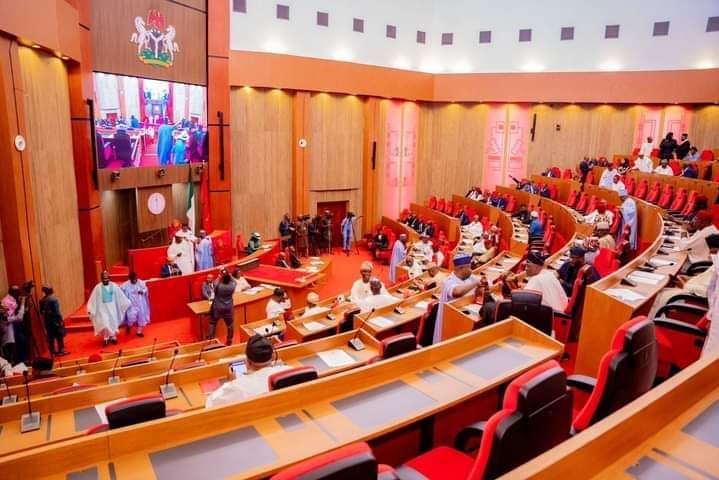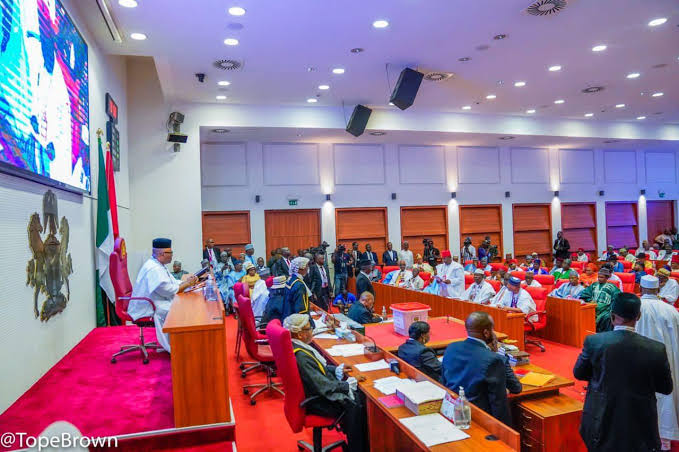Non-state actors in the agricultural sector have disclosed that one in five Africans goes hungry each day, while two out of every eleven Nigerians lack adequate food.
The Comprehensive Africa Agriculture Development Programme, National Focal Person, Onijighogia Emmanuel, revealed this on Friday in Abuja, while moderating a workshop for non-state actors on the Maputo to Kampala Declaration.
The Kampala Declaration, adopted by African Union Heads of State in January 2025, sets out a 10-year plan (2026–2035) aimed at transforming Africa’s agrifood systems. It prioritises increased agricultural output, food and nutrition security, sustainability, and resilience across the continent.
While moderating the workshop, Emmanuel urged non-state actors to support the implementation of the declaration, stressing that government, farmers, and civil society organisations all have critical roles to play.
He noted that Africa’s population is projected to reach 2.5 billion by 2050, with Nigeria alone expected to hit 450 million. Against this backdrop, Emmanuel warned of worsening food insecurity, pointing out that 58 per cent of Africans already face food insecurity, with 924.8 million people unable to afford a healthy diet.
“In Nigeria, about six in ten households cannot afford nutritious meals,” he said.
He added that unsafe food remains a major challenge, with over 130,000 people across Africa falling ill from contaminated food annually, including more than 50,000 in Nigeria, leading to reduced productivity and financial strain on families.
On commitments by African leaders, Emmanuel recalled that under the Maputo and Kampala declarations, governments pledged to allocate 10 per cent of their national budgets to agriculture to stimulate a 6 per cent GDP growth rate. Nigeria, however, currently spends only about 3 per cent.
He commended the recent move by the Minister of Agriculture and Food Security to establish a technical committee to draw up a 10-year national plan aligned with CAADP.
He also highlighted the formation of an Agricultural Central Working Group, consisting of 86 members from the government, the private sector, development partners, farmers’ organisations, and financial and research institutions.
Calling for greater involvement of women and youths in farming, Emmanuel said: “We need to encourage women and young people to participate in agriculture.”
Azubike Nwokoye, ActionAid Nigeria’s Food Systems Specialist, emphasised the importance of accountability in implementing the Kampala Declaration. He urged non-state actors to strengthen research, evidence generation, and policy advocacy to ensure adequate budgetary allocations for agriculture and their effective utilisation.
He said areas requiring urgent focus include access to credit, participation by women and youth, labour-saving technologies, extension services, storage and processing facilities, and measures to reduce post-harvest losses.
Nwokoye explained that ActionAid has supported smallholder women farmers by organising them into cooperatives, forming a movement of over two million members nationwide – the largest in Africa.
He added that ActionAid is also working with partners to mobilise young farmers and support their participation in agricultural policy-making.
The Coordinator of the Small-Scale Women Farmers’ Organisation, Oyediji Grace Bukola, reaffirmed her group’s commitment to pushing for the full implementation of the Kampala Declaration.
She appealed to the government to increase agricultural investment, especially by meeting the 10 per cent budgetary allocation target, and to ease access to credit for smallholder farmers.
“We are going to intensify advocacy on the implementation of the Kampala Declaration at federal, state, and local government levels,” she said.
Warning against neglecting the sector, she added: “Farmers don’t want to go on strike. Because if we go on strike, nobody will have food on their table. We want to put food on every household’s table.”
PUNCH Online reports on May 11, 2025, that Nigeria is facing a deepening poverty crisis, with more than 75% of its rural population and over 40% in urban areas living in poverty.
Since overtaking India as the world’s poverty capital in 2018 with 86.7 million people in extreme poverty, the situation worsened to 133 million Nigerians living in multidimensional poverty by 2022, lacking necessities like food, education, clean water, and healthcare.
The crisis was exacerbated in 2024 following the removal of petrol subsidies and the floating of the naira, which, despite fiscal intentions, were implemented without sufficient social safety nets, worsening hardships for ordinary citizens. This ongoing crisis reflects structural economic challenges and calls for urgent, comprehensive interventions to prevent Nigeria from becoming the global poverty epicentre
WARNING: If You Are Not 18+, Don’t Click The Link Below 👇🫣
https://pickignoranceattacks.com/m3e85u39j?key=f0014e9d9438d5115e4d66e73ca3f04b
Please don’t forget to “Allow the notification” so you will be the first to get our gist when we publish it.
Drop your comment in the section below, and don’t forget to share the post.
Never Miss A Single News Or Gist, Kindly Join Us On WhatsApp Channel:
https://whatsapp.com/channel/0029Vad8g81Eawdsio6INn3B
Telegram Channel:
https://t.me/gistsmateNG


